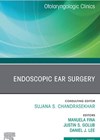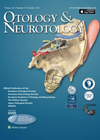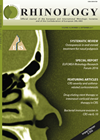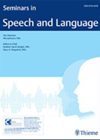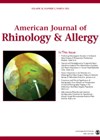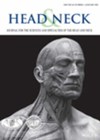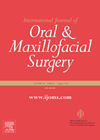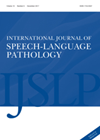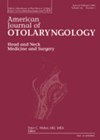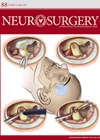
Journal Reviews archive for July 2021
Lateral skull base surgery using the endoscope
Endoscopic lateral skull base surgery could be performed via less invasive techniques due to wide panoramic visualisation of the operative field. With less invasive techniques, patients have been shown to require shorter recovery time and reduced postoperative pain. In this...
Well drilling vs. subperiosteal pocket for cochlear implants – comparison of operative time, complications and cost-effectiveness
The choice of method for securing the receiver/stimulator (R/S) package during cochlear implant surgery is usually dependant on several factors, but primarily surgeon preference. The initial recommendation from manufacturers was to drill a bony well (WD technique) and use bony...
Does septoplasty improve smell?
This is a study from Barcelona on a very interesting topic: does septoplasty change sense of smell? The theory being that a deviated septum would prevent airflow to the olfactory region and once the anatomical obstruction has been relieved, that...
Telepractice in COVID-19 and beyond
COVID-19 has suddenly forced health professionals to switch from face-to-face to remote video conferencing to deliver many or most of their services. This article considers the current state of this service delivery model (also called telepractice) for speech and language...
Can we predict how much benefit patients will get from ESS with a novel monoclonal antibody
Mepolizumab (Nucala) is a humanised IgG1 monoclonal antibody that acts as an IL-5 antagonist. It has been shown to be highly effective in treating severe asthma. It is hypothesised that it will be effective for patients with recalcitrant CRSwNP. This...
Reducing the risk of Frey’s syndrome after parotidectomy – which methods are best?
Gustatory sweating or Frey’s syndrome is a well-recognised complication of parotid surgery. The reported incidence is highly variable, from 4% to 96%, with around 30% of patients reporting symptoms. A number of intraoperative techniques can be used to reduce the...
Structures determining T4a, T4b
This paper for tertiary cancer centre in India attempted to determine whether patients with T4b oral cancers involving the 'masticator space' should be treated with survival intent comparable to T4a cancers. Over a 7-year period, 30 patients with T4b cancers...
Till death do us part: the role of the speech and language therapists in palliative care
Increasingly, speech and language therapists are being involved in end-of-life and palliative care. This study reports on a three-phase project to explore this in the context of the Australian healthcare system. In phase one, the authors described a scoping review...
Combination PPI and intralesional steroid treatment for recurrent laryngeal granuloma
The existence of a wide range of treatments for recurrent laryngeal granulomas (repeat surgery, high-dose proton pump inhibitor (PPIs), surgery with botulinum toxin injection, botulinum toxin injection alone, etc) is a testament to the refractory nature of this condition, with...
Review of pituitary tumour pathology
This is an excellent review article covering the pathology of pituitary adenomas (PA) as well as rare sellar lesions like lymphocytic hypophysitis that require aggressive treatment. The authors have preserved the 2017 World Health Organization (WHO) classification of PA and...

